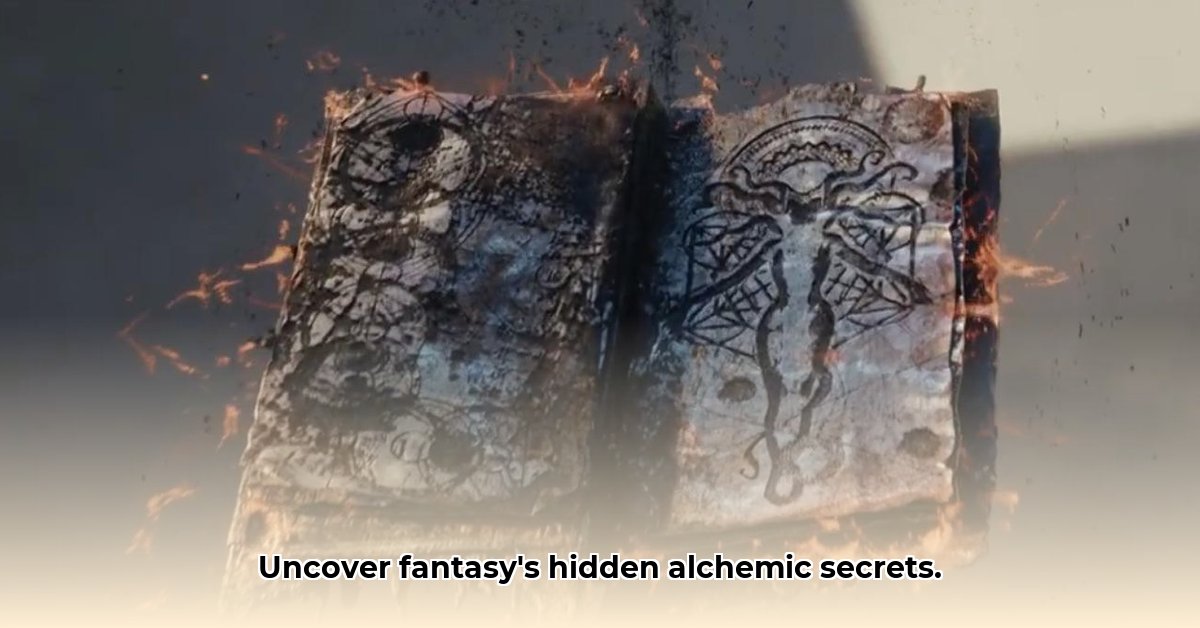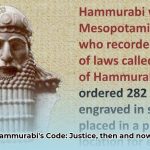Ever been entranced by the world of alchemy? From the legendary philosopher’s stone to the captivating system in series like Fullmetal Alchemist, it has long been a staple of legends and stories. For more on the origins of fantastical elements, check out this article on mythical creature origins. This article explores the presence of alchemy in fantasy, examining its historical roots, diverse cultural interpretations, and fictional adaptations. We’ll dissect the ethical quandaries that arise from the use of alchemical powers and provide actionable insights for crafting your own authentic and engaging alchemy system for your fantasy tales, drawing inspiration from exemplary authors. We’ll trace alchemy’s evolution in the realm of fantasy and provide a narrative framework that readers will adore.
Alchemy: Bridging the Gap Between Science and Magic
What exactly is alchemy, and how does it influence our favorite fantasy worlds? The term conjures vivid images of bubbling flasks, arcane symbols, and the eternal quest for immortality. But is alchemy purely mystical fantasy? Or could it be rooted in genuine scientific study?
The Alchemist’s Journey: Where Science Meets Mythology
Picture a dimly lit alchemist’s workshop, filled with peculiar equipment and the pungent aroma of exotic herbs. In these spaces, the boundaries between science and magic blurred. Alchemists were not merely eccentric scientists; they were early chemists, metallurgists, physicians, and philosophers combined. They meticulously explored the properties of materials, seeking to understand and transform them. Their mission? Often, it was to create the elusive philosopher’s stone, a legendary substance believed to grant immortality and transmute base metals into gold. Even though the promise of gold transmutation proved elusive, these relentless pursuits drove advancements in chemistry, metallurgy, and medicine that formed the foundation of modern science. Their unintentional discoveries proved more valuable than any gold! Figures like Isaac Newton and Robert Boyle, cornerstones of modern science, dedicated considerable time to alchemical studies.
The Symbolic Alchemy: Beyond the Literal
For many, the quest for the philosopher’s stone transcended material wealth, symbolizing spiritual transformation and acting as a potent metaphor for self-discovery in the pursuit of enlightenment. This symbolic interpretation has resonated powerfully with artists and writers throughout history, providing fertile ground for rich storytelling and the exploration of complex themes.
Fictional Alchemists: Complex Characters in Complex Worlds
Alchemists in fantasy literature frequently grapple with profound ethical issues due to their mastery of powerful abilities. They are often portrayed as complex, morally ambiguous characters who possess vast scientific knowledge intertwined with mystic abilities. They might create artificial life, manipulate natural forces, or unlock the secrets of forbidden knowledge, driving us to question their true intentions: Are they motivated by a genuine thirst for knowledge, or are they driven by the allure of power? The morally grey characters within Fullmetal Alchemist and Harry Potter make their fictional worlds feel very compelling.
Crafting Magical Systems: The Alchemy of Storytelling
Compelling fantasy writing often hinges on believable and consistent magic systems. Alchemy is perfectly suited for building complex worlds with clearly defined rules, limitations, and consequences. The intricate rules in Fullmetal Alchemist, such as equivalent exchange, add depth and realism, making the world feel more tangible and believable.
The Price of Progress: Examining Ethical Quandaries
The pursuit of alchemical knowledge often leads characters to moral crossroads. Creating artificial life, manipulating the elements, or delving into forbidden secrets raises profound ethical questions: Is the desire for knowledge sufficient justification for potentially harming others? Do the ends justify the means? Many stories masterfully demonstrate the potential consequences of ignoring such critical questions, forcing us to confront the limitations of progress and question what safeguards should be in place.
Alchemy in Action: Examples from Literature and Beyond
Countless authors have skillfully integrated alchemy into their works, often with thought-provoking and captivating results. Fullmetal Alchemist uses alchemy as a core mechanic to drive the plot forward and shape compelling character development. Other stories employ it more subtly, showcasing the versatility alchemy provides for intricate world-building. Beyond literature, video games like The Witcher series and Final Fantasy incorporate alchemy as central gameplay mechanics, allowing players to experiment with potion-making and experience the consequences firsthand.
Alchemy’s Enduring Appeal: An Enduring Legacy
The captivating blend of science and magic in alchemy makes for enduring narratives. Further, the profound questions it raises about ethics, responsibility, and the nature of power promise to remain relevant for generations to come. The study of alchemy provides us with a fascinating glimpse into the past and offers a valuable lens through which to examine our own ethical responsibilities as we continue to advance scientific and technological achievements.
Ethical Alchemy: Creating Believable Fantasy
Fantasy alchemy provides a powerful tool for exploring real-world concerns about power, mirroring our anxieties about responsibility and the potential for unintended consequences.
Key Takeaways:
- Fantasy alchemy offers a potent tool for exploring ethical dilemmas, mirroring real-world anxieties about power, responsibility, and the pursuit of knowledge.
- Clear rules and limitations for your alchemical system are essential for consistent storytelling. This includes meticulously defining ingredients, processes, potential consequences, and any associated costs.
- The transformative “Great Work” process offers a rich framework for character arcs, reflecting both external and internal changes that characters undergo throughout the course of a story.
The Lure of Alchemy: An Ambiguous Allure
Alchemy sits at the fascinating intersection of proto-science and mysticism, amplified in fantasy to become a compelling and versatile world-building tool. What if the philosopher’s stone was real? Such questions immediately open doors to countless possibilities and complex ethical burdens.
The Building Blocks: Ethical Dilemmas in Alchemical Systems
Establish clear rules and unexpected consequences to ground your alchemical system.
Step 1: Define the Fundamentals
- Establish the fundamental rules of your alchemical world by meticulously defining the basic processes, core ingredients, potential reactions, and inherent limitations.
Step 2: Introduce the Ethical Conflicts
- Consider introducing ethical dilemmas through the inherent risks and potential side effects of alchemy. Are there unforeseen consequences to using powerful concoctions or experimenting with forbidden techniques?
Step 3: Explore the Consequences
- Every action has a reaction. Carefully consider the short-term and long-term effects of using alchemy on individual characters, society as a whole, and the broader world itself.
Case Study: Examples from Fantasy Literature
Fullmetal Alchemist serves as a compelling example of the ethical pitfalls of pursuing ambitious alchemical goals without properly considering the consequences. said Kazuhiko Murata, Anime Expert at Madman Entertainment. The Elric brothers’ attempts to resurrect their mother lead to devastating consequences, highlighting the dangers of tampering with the natural order.
The Moral Compass: Shaping the Narrative
The ethical considerations and moral ambiguities within fantasy alchemy directly shape the characters’ moral compasses and drive the central narrative forward.
Suppose your protagonist discovers the means to achieve immortality, but only at the terrible expense of another’s life. Such a morally complex dilemma enriches the narrative with profound philosophical depth and forces characters to confront their core values.
Beyond Fantasy: The Power of Ethical Alchemy
With careful consideration and meticulous planning, ethical implications become a compelling and integral part of your alchemical system. You’ll craft a world that isn’t just fantastical and imaginative, but also deeply thought-provoking and emotionally resonant.
The Ethics of Alchemy: Practices in Fantasy Fiction
By thoroughly examining the moral implications inherent in alchemical practices, we can further develop a rich and compelling fantasy world. The ethics of alchemy in fantasy are deep, vibrant, and endlessly fascinating.
Key Takeaways:
- Alchemy in fantasy literature often serves as a powerful mirror, reflecting real-world anxieties about power, knowledge, and the potential for unintended consequences.
- Fictional alchemical practices raise profound questions about responsibility, hubris, and the ethical boundaries of experimentation.
- Authors skillfully use alchemy to explore universal themes of transformation, both personal and societal, and the complex costs associated with progress.
The Shadow of the Philosopher’s Stone: Morality and Alchemy
The allure and danger of alchemy are often centered on the legendary Philosopher’s Stone. What if this immense power fell into the wrong hands? This central question forms the core of many compelling narratives. Consider the potential for corruption, abuse of power, and the erosion of moral principles. Doesn’t this mirror our own real-world concerns about uncontrolled scientific advancements and the abuse of technology?
Forbidden Knowledge and its Price: Examining Temptation
Many captivating fantasy stories explore the consequences faced by characters who pursue forbidden knowledge, often with devastating results that ripple outward and affect entire societies. The pursuit of immortality, for example, often comes at a terrible price, demanding sacrifices that challenge the very definition of morality. Does this cautionary tale resonate with our anxieties about exceeding ethical boundaries in the pursuit of progress?
Mirroring the Soul: Alchemy for Transformation
Alchemy frequently symbolizes personal growth, acting as a powerful mirror that reflects the protagonist’s transformative journey. Yet, even this symbolic application has significant ethical dimensions: What happens when personal transformation comes at the direct cost of others?
The Alchemist as Archetype: Fantasy Personified
The alchemist embodies a complex and multifaceted archetype, ranging from the wise and benevolent sage to the power-hungry and morally corrupt sorcerer. How do these vastly different characters influence our perceptions of real-world scientists, researchers, and practitioners?
The Alchemy of Anime: Case Study: Fullmetal Alchemist
Fullmetal Alchemist provides a compelling example of the nuanced exploration of these complex concepts. The Elric brothers’ desperate attempts to resurrect their deceased mother lead them down a treacherous path fraught with moral dilemmas and devastating consequences. This illustrates the inherent pitfalls of hubris and raises fundamental questions about the lines we should never cross.
The Ethics of Alchemy: A Continuous Conversation
Alchemy in fantasy is far more than a mere plot device. It functions as a powerful and enduring metaphor, reflecting our complex and ever-evolving relationship with scientific progress, technological innovation, and the pursuit of knowledge. Through the lens of fantasy, we can critically examine the ethical implications of our actions and grapple with profound questions about power, responsibility, and morality.
Cultural Alchemy: Diverse Interpretations in Fantasy
Alchemy’s rules, applications, and societal perception can vary dramatically, ranging from a strictly defined science-like system to a more fluid and mystical form of magic, heavily influenced by diverse cultural interpretations and historical contexts.
Key Takeaways:
- Alchemy in fantasy often reflects real-world historical interpretations, adding layers of depth, authenticity, and cultural richness to fantastical worlds.
- It serves as a powerful narrative tool, symbolizing personal transformation, fueling compelling plotlines, and exploring profound philosophical themes.
- Ethical dilemmas surrounding the pursuit of power, the acquisition of forbidden knowledge, and the potential for unintended consequences remain central and enduring themes.
The Alchemist’s Soul Mirror: Reflecting the Narrative
How do authors skillfully use alchemy to reflect the complexities of the human condition? The trials and tribulations an alchemist undergoes often mirror the overarching narrative arc, with the processes of refinement, transmutation, and experimentation becoming a potent metaphor for personal growth, self-discovery, and spiritual enlightenment.
Alchemy as a Magic System: Diverse World-Building
In fantasy, alchemy frequently forms the foundation of a world’s magic system, providing a framework for understanding and manipulating the fundamental forces of nature. Sometimes it’s a strict, rule-based system with clearly defined limitations, while other times it’s more fluid and intuitive, allowing for diverse and creative approaches to intricate world-building.
The Crucible: Ethical Quandaries in Alchemy
The relentless pursuit of alchemical power often raises difficult ethical questions and forces characters to confront their moral boundaries. Numerous examples illustrate this, from the catastrophic consequences of hubris to the agonizing decisions that arise when faced with impossible choices. What ethical boundaries would you set within your own alchemical system?
Cultural Interpretations Across Fantasy: A Comparative Look
| Subgenre | Typical Alchemical Portrayal | Examples |
|---|---|---|
| High Fantasy | Often deeply tied to ancient, powerful magic; portrayed as a source of immense power and wisdom. | The Wheel of Time series (channeling saidar and saidin), Mistborn series (Allomancy and Feruchemy), The Lord of the Rings. |
| Urban Fantasy | Alchemy often blended with modern technology; subtle, practiced in secret, and used for practical purposes. | The Dresden Files, Rivers of London series, American Gods. |
| Dark Fantasy | Alchemy frequently used for nefarious purposes; portrayed as a potent, dangerous, and often corrupting art. | Many dark fantasy works featuring necromancy, demonology, and blood magic, such as Berserk. |
| Steampunk Fantasy | Alchemy seamlessly integrated with advanced technology; intricate mechanisms, automatons, and clockwork creations. | The Difference Engine, Girl Genius, Fullmetal Alchemist (blends steampunk with other elements). |
| Historical Fantasy | Alchemy grounded in real historical practices and beliefs; often explores the philosophical underpinnings of the craft. | Jonathan Strange & Mr Norrell, The Name of the Rose, The Physician. |
Alchemy’s remarkable variation and adaptability highlight its enduring flexibility as a narrative tool, reflecting our own deep fascination with storytelling, world-building, and the exploration of the human condition.
















